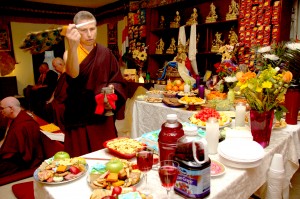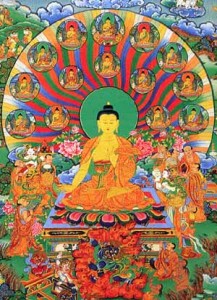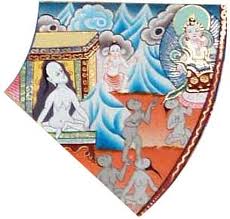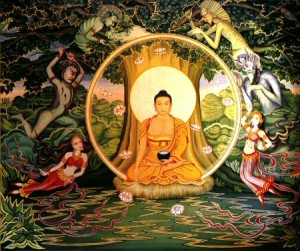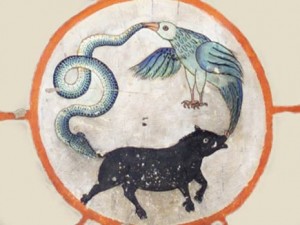The following is an excerpt from a teaching by Jetsunma Ahkon Lhamo called “Desire Blocks Happiness”
What is the end of it? Where does it end? It ends when you take yourself in hand and begin to practice stabilizing the mind. The Buddha teaches us that the cause of all suffering, every part of it, no matter what it is, if you trace it down to its root, is desire. How can you kick desire? Everybody’s got desire. You have the desire for life itself, don’t you? I mean, you don’t want to die or anything. You have the desire to be happy. All sentient beings have the desire to be happy. That’s one thing we all share. Do you realize that? We share with every life form that there is. All sentient beings have their common familyhood, brother- and sisterhood. They all wish to be happy. They’re all doing it in different ways, but we all wish to be happy. We have that desire, and we are inflamed with it.
How can we reduce that inflammation? It’s like we have to step off the conveyor belt. You know what I’m saying? We have to step off the merry-go-round that just makes us want and fulfill and want and keep trying to fulfill, and keep doing that round and round and round and round endlessly. It’s like you just have to stop for a minute. Step off of it and look at what you’re doing. Look at the habit pattern. Look at the pattern. Just look at it. This is sometimes more difficult for younger people to do, because they just honestly haven’t lived long enough to see their patterns. For people who have reached maturity, it’s much easier to see the quality of the relationships and friendships that you’ve had. It’s much easier to see the level of fulfillment that you’ve had from material goods. It’s much easier to understand that you have been going through the same thing since you can remember. For younger people, it’s more difficult. But for older people, it’s very obvious. And the people that it’s easiest for are the people who are coming to the end of their life who have reached an advanced age, or an elderly age. And at that point, they’re carrying, perhaps hidden inside of them, a disappointment. There are things that we become very disappointed about. Things that have just not come together that we always assumed would. We always thought that they would.
When we come to that fantastic point, where the old gig, the old game doesn’t work for us anymore, we become disillusioned. It’s a heart-breaking time in one way, isn’t it? It’s really heart-breaking. It’s hard to bear, hard to face. But you know something? It’s the best time for you, the best time that you have ever experienced. Until you have come to that moment, you really haven’t been born yet. You’re like an egg, you know, just revolving around in your little shell, kind of a big yolk. Ha, ha. Hey, that was pretty good. You have to admit. A little levity there to cheer you up in the middle of your suffering. But anyway, revolving around inside your shell, and not getting anywhere. The moment that you become dissatisfied and panicky because your gig isn’t working any more, terrified because it may never work, uptight because you don’t know what to do next, grieving because nothing’s ever worked… At that moment, when you feel like you’re about to have a nervous breakdown, you’re on your way, kid. It’s probably the best and most mature moment of your life because you have to come to that moment to get anywhere. You can’t do this while you’re on the merry-go-round. You can’t do this unless you fall apart a little bit. You can’t get the big picture. You have to see the faults of cyclic existence. You have to look at it square on.
You must see. You must look cause and effect relationship in the eye. And you’ve got to really face one very sad fact about cyclic existence: No matter what we accumulate during the course of our lives, we can’t take even so much as a sesame seed with us. None of it. We can’t take relationships with us. We can’t take objects with us. We can’t take even ideas with us, those things that we spend so much time building up. We certainly can’t take emotions with us. And how much time do we spend watching our emotions and reacting to them? We can’t take any of that with us. We take one thing with us: the condition of our mindstreams, our own habitual tendencies. And if we have the habit of grasping, trying to satisfy ourselves, to the exclusion of virtuous living, and then being disappointed, that is the habit, that is the content of our mindstreams that we will take with us into the intermediate state, and into our next rebirth. The habits of our mindstream—that is what we take with us.
Copyright © Jetsunma Ahkon Lhamo. All rights reserved



